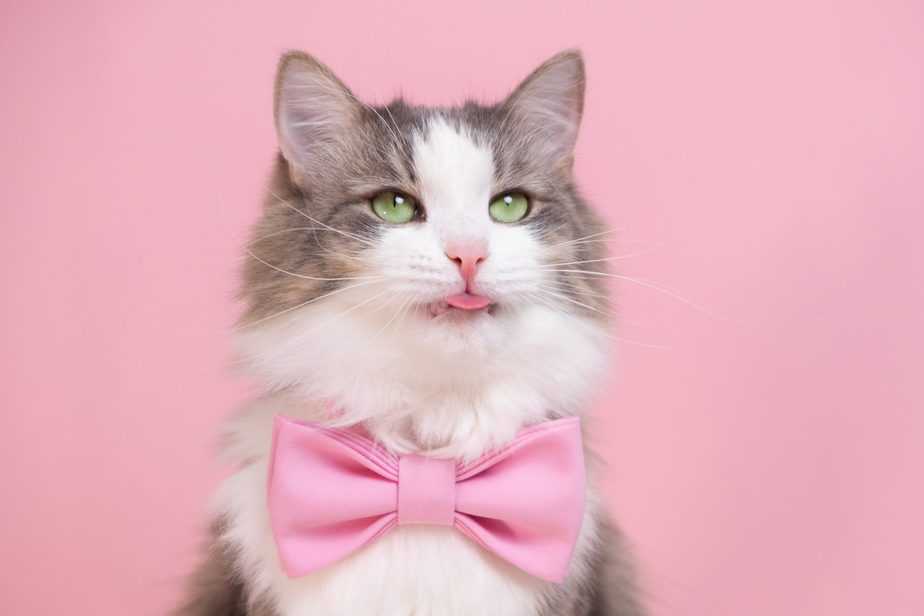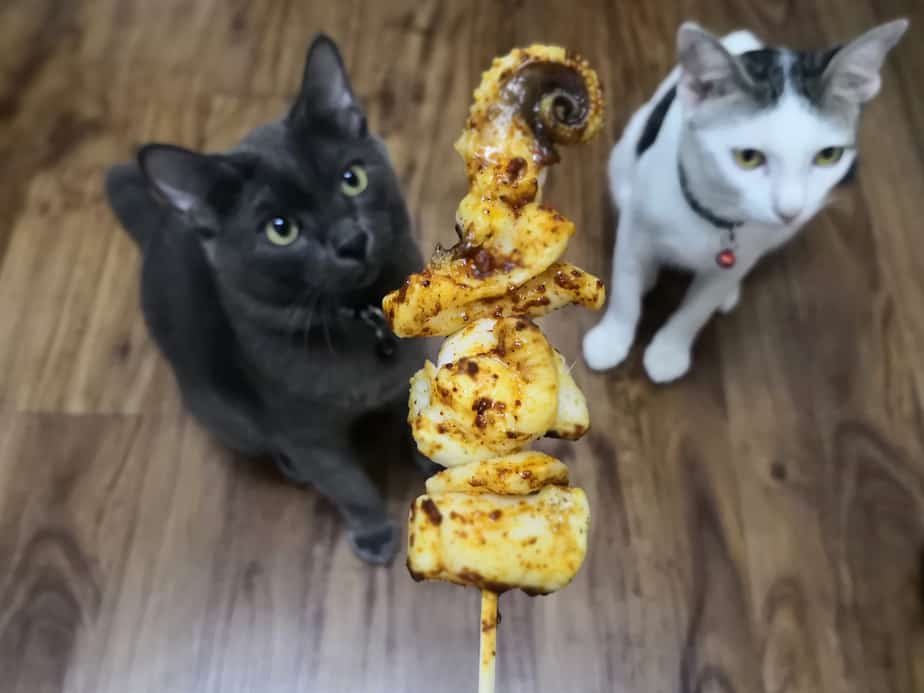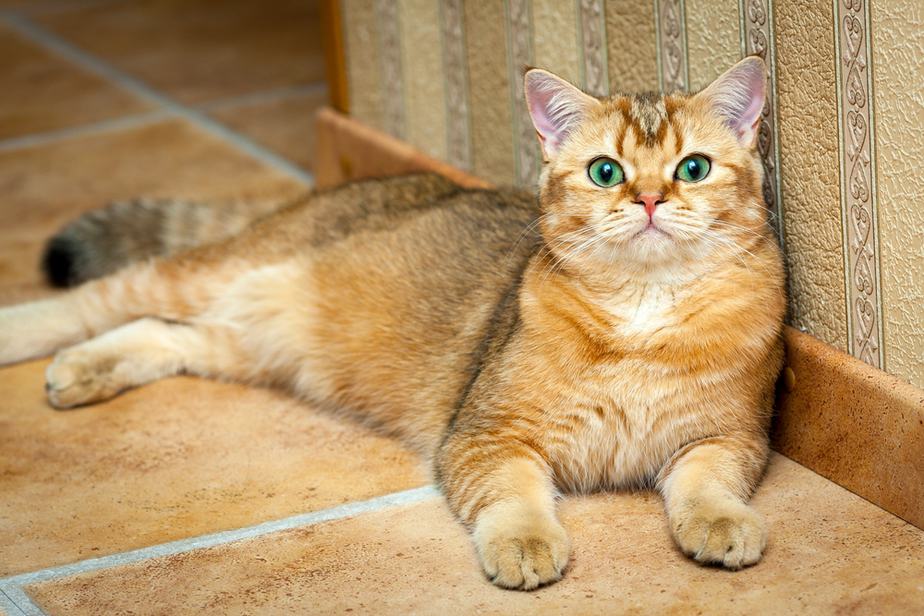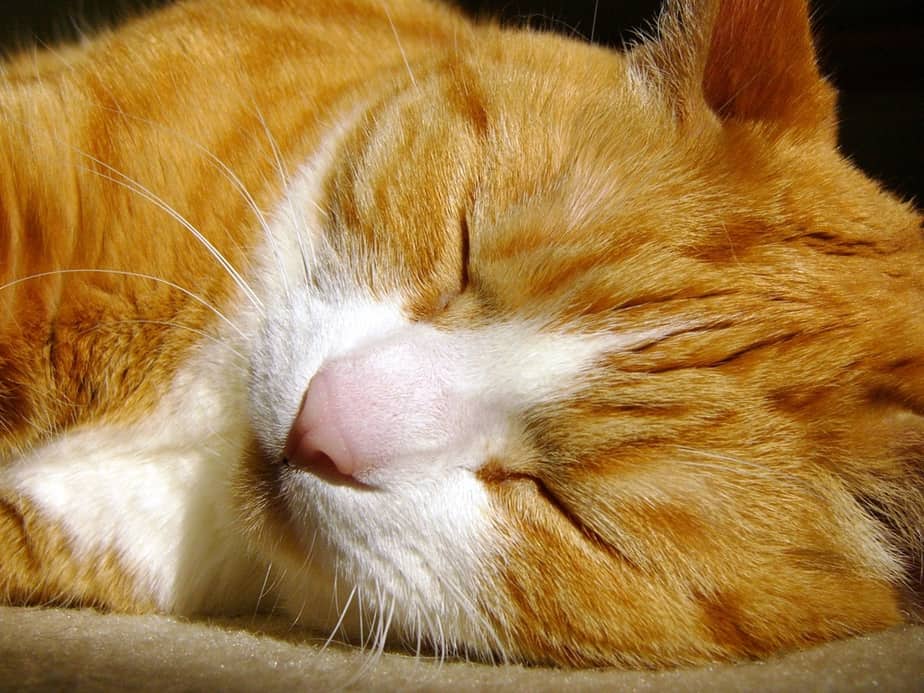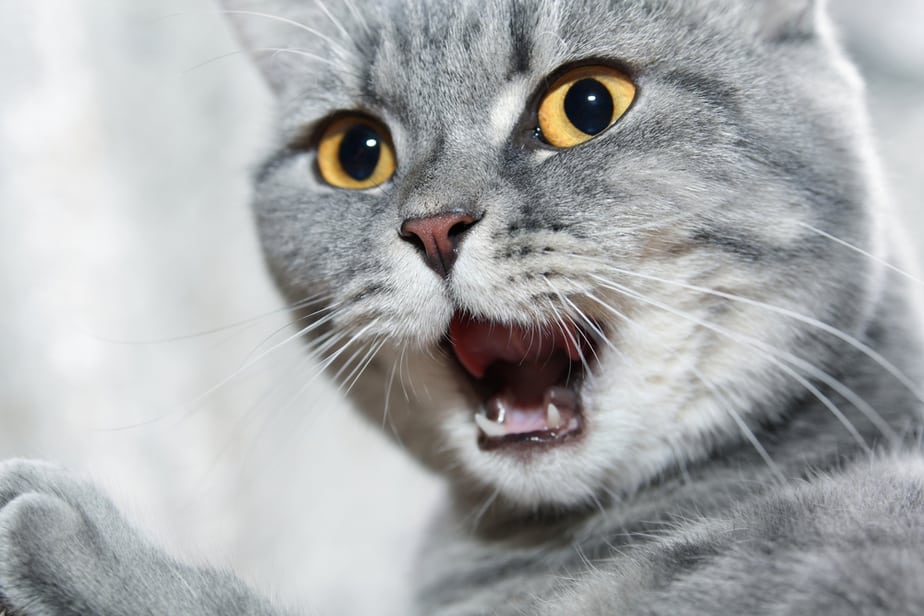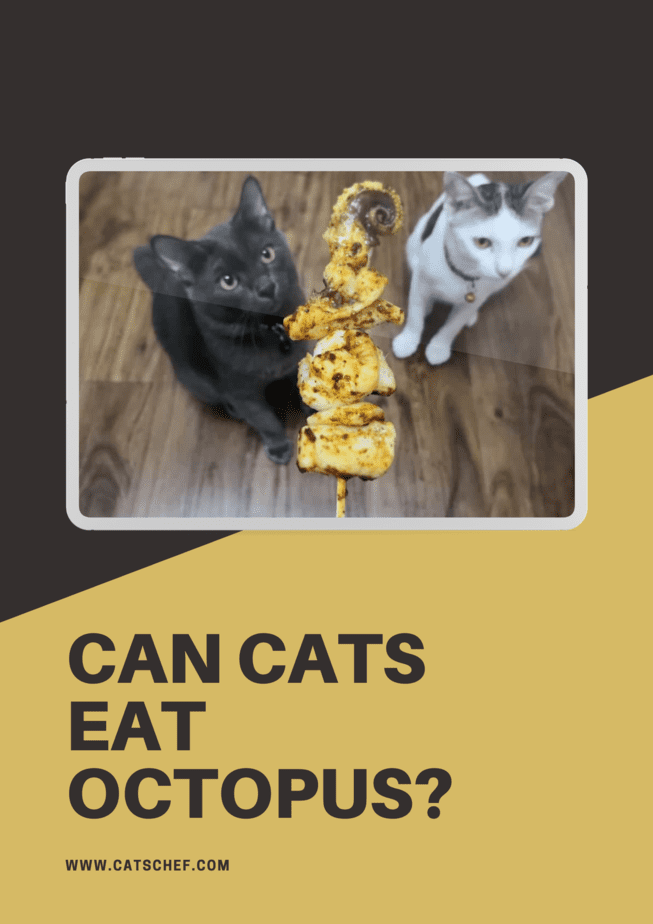📖 Table of Content:
Many cuisines around the world, such as Japanese and Mediterranean use different seafood items in many meals. It’s not uncommon for cats to also have a taste for seafood. Fish, for example, is an important element of a cat’s diet, correct? So, can cats eat octopus?
At first, cats may be wary of this mushy food. They are fussy eaters, so it doesn’t surprise you when she declines the octopus you just offered. However, the main concern is whether octopus is safe for cats to consume, not if your cat is picky.
Cats are curious creatures, which may make life difficult for humans. But have no worries, you’ve come to the right place; we’ll tell you everything you need to know in order to share a bite of this delicacy with your pet!
Can cats eat octopus, or should you keep it away from them?
Octopus can provide your pet with numerous important nutrients. If you never fed your cat this sort of food before, take it slowly at first.
Introduce this ingredient in small quantities. Make sure not to add any extra spices or seasonings, as some common condiments are difficult for cats to consume. If the introduction goes well, and your cat’s stomach agrees – you’re good to proceed!
Raw octopus, like raw crab meat, may irritate your cat’s stomach, so make sure to cook the meat before feeding your cat. Because of the possibility of bacteria and parasites, raw foods can be extremely risky for your pet to eat.
Make sure you prepare her meal properly so she can enjoy it without any negative effects.
Octopus is generally safe for your pet, that is, unless she’s allergic to seafood. She can eat this delicacy on occasion, but before introducing any new foods, it’s best to consult with your veterinarian.
However, octopus meat does have some drawbacks. It’s a calorie-dense food, so you should limit the amount of octopus you feed your cat. Even though calories are essential for both humans and cats, the daily caloric intake should be limited in order to maintain good health.
We understand that staying away from some foods might be tough at times, but it’s for you and your kitto’s good! Make sure she doesn’t consume octopus meat regularly or in large quantities due to its high-calorie content.
It also contains protein and lipids that may appeal to your feline companion. While cats can eat octopus on occasion, they shouldn’t indulge in it on a regular basis.
A high-calorie diet also increases the chance of developing type 2 diabetes. Obesity, in turn, can ruin the overall quality of your cat’s life.
Can cats benefit from eating octopus?
Octopus is not only safe for cats to eat, but it’s also quite healthy. This seafood has a wide range of healthy nutrients, including vitamins and minerals.
This is excellent news for cats, particularly those who enjoy eating seafood. Cats require vitamins and minerals on a daily basis. We must offer these essential nutrients to our pets in the same way as they would find them in the wild.
Octopus is high in protein just like lobster, which is great news. Felines require protein on a daily basis and in general, seafood is a fantastic source of this nutrient.
A source of protein
Felines, as obligate carnivores, require animal protein to produce energy. This means they have a difficult time digesting anything that isn’t meat. If your cat isn’t getting enough protein, she will suffer from weight and muscle loss, as well as general weakness.
Octopus is a fantastic source of protein for cats if prepared properly. In general, this meat is thought to be of higher grade and more protein-dense than red meat.
Animal-derived protein is essential to our pet’s health. It aids in muscle mass development, keeps their neurological system healthy, and also boosts their immunity.
Low-fat food
Octopus is also low in fat, making it a wonderful complete protein option for furballs who are attempting to lose weight. This, however, is dependent on how the meat is prepared. Frying or cooking octopus in butter or oil will increase the amount of fat and calories in your pet’s meal.
Omega-3 fatty acids are abundant in plates of seafood, including octopus. These can benefit your cat’s fluff because they help to strengthen hair follicles, resulting in healthier fur and reduced shedding.
These fatty acids also have anti-inflammatory properties, which can benefit pets with joint inflammation. This is especially advantageous for older cats since these anti-inflammatory properties aid in easier movement and reduced joint pain.
Other nutrients found in octopus
Taurine, an amino acid found in octopus, has been proven to lower blood pressure and cholesterol levels. The antiviral properties of taurine help your kitto’s organism fight inflammation and act as an antioxidant.
Moreover, taurine plays an important role in proper cell function and reproduction, making it less likely for those cells to form cancer-causing mutations.
Octopus is a source of bunch of other antioxidants, such as selenium, vitamin B12, and folate. These may help lower the risk of developing cancer. While further research on the potential of antioxidants needs to be done, deficits have been related to an elevated risk of cancer.
Selenium is an antioxidant that fights oxidative stress and aids in the prevention of chronic diseases (including heart disease and cancer). Folate (vitamin B-9) is necessary for the creation of red blood cells as well as proper cell growth and function.
Vitamin B12 is also important in the production of red blood cells. Megaloblastic anemia is caused by a deficiency in vitamin B12, which affects the synthesis of red blood cells.
Can cats eat raw octopus?
The short answer would be a simple no. We cannot possibly advise you to feed your cat raw foods, especially seafood. They can transmit infections to cats and pose a choking hazard.
Octopus that has been grilled, seared, boiled, or braised is a much better option. It will provide a fantastic source of protein for cats when prepared one of these ways, and without any seasoning.
Cooked octopus has a lot of nutrients that can help your cat. Zinc, phosphorus, magnesium, and vitamins E and B12 are all abundant in this type of meat.
Just like any other food, we can get rid of any bacteria and parasites when we cook octopus in boiling water. Raw octopus meat has germs that can cause a variety of dangerous illnesses.
Raw foods, in general, may be infected with bacteria. Some of the most frequent bacteria found in raw meat are listeria, vibrio, clostridium, and salmonella.
These bacteria can cause a variety of symptoms, including vomiting, diarrhea, nausea, and an upset stomach. Next to bacteria, raw octopus can also harbor parasites such as tapeworms, roundworms, and liver flukes.
Cats who eat raw octopus could become a potential host for any of these parasites. An infection like this could drastically degrade the quality of your pet’s life.
High concentrations of the metal cadmium can be found in octopus heads. This is a reason for concern since felines are prone to heavy metal toxicity.
So, it’s best to keep the amount of octopus you feed them to a minimum. That way, you’ll make sure to keep your cat safe and healthy.
Choking hazard
Another problem that cats can have when eating raw octopus is that it’s too chewy for your cat’s teeth to effectively break down. This can be easily resolved by cooking the meat.
Chop up the cooked octopus into bite-sized pieces to avoid the potential choking hazard for your cat. Even then, you should keep an eye on your cat as she devours this delicacy.
If your cat’s having digestive trouble or hiding after eating octopus, it’s possible she ingested a larger portion. It’s likely that it passed her throat but became lodged in her intestines.
Can cats eat octopus tentacles?
Your concern when it comes to feeding octopus to your pet might be the many tentacles it has. These sticky parts can be strong and scary, but don’t panic. They won’t harm your pet if you cook them properly. However, make sure to cut them into small, bite-sized pieces!
That way, you’re reducing the risk of your greedy cat choking on them. As long as they’re left unseasoned and without additional spices, she’s good to go.
Seafood allergy
For humans, an allergy to seafood is inconvenient at best. Even though seafood isn’t a natural part of a cat’s diet, it would be a shame if your feline pet had to go her whole life without trying any.
Your pet can be born with a seafood allergy, or she may develop it later in life. Cats can eat octopus, but if she’s allergic, this indulgence may come with a price.
You’ll know your cat is allergic if you observe a skin rash and/or excessive scratching after eating squid, lobster, or octopus. She could also show indicators of respiratory problems, such as coughing, shortness of breath, and the swelling of the throat.
Before it comes to any of that, make sure to consult with your vet about the potential allergies your cat may or may not have developed during her life.
Can cats eat octopus safely?
Yes, cats can eat octopus on occasion! Octopus is a high-protein food, which benefits their overall health, increases muscle mass, and serves as the primary source of energy for your pet. However, never feed your cat raw octopus, as it may contain bacteria that can make your cat ill.
Uncooked meat can cause a variety of infections, some of which may prove fatal if left untreated. Cats can safely eat octopus, as long as it’s properly cooked without any additional seasonings and spices.
